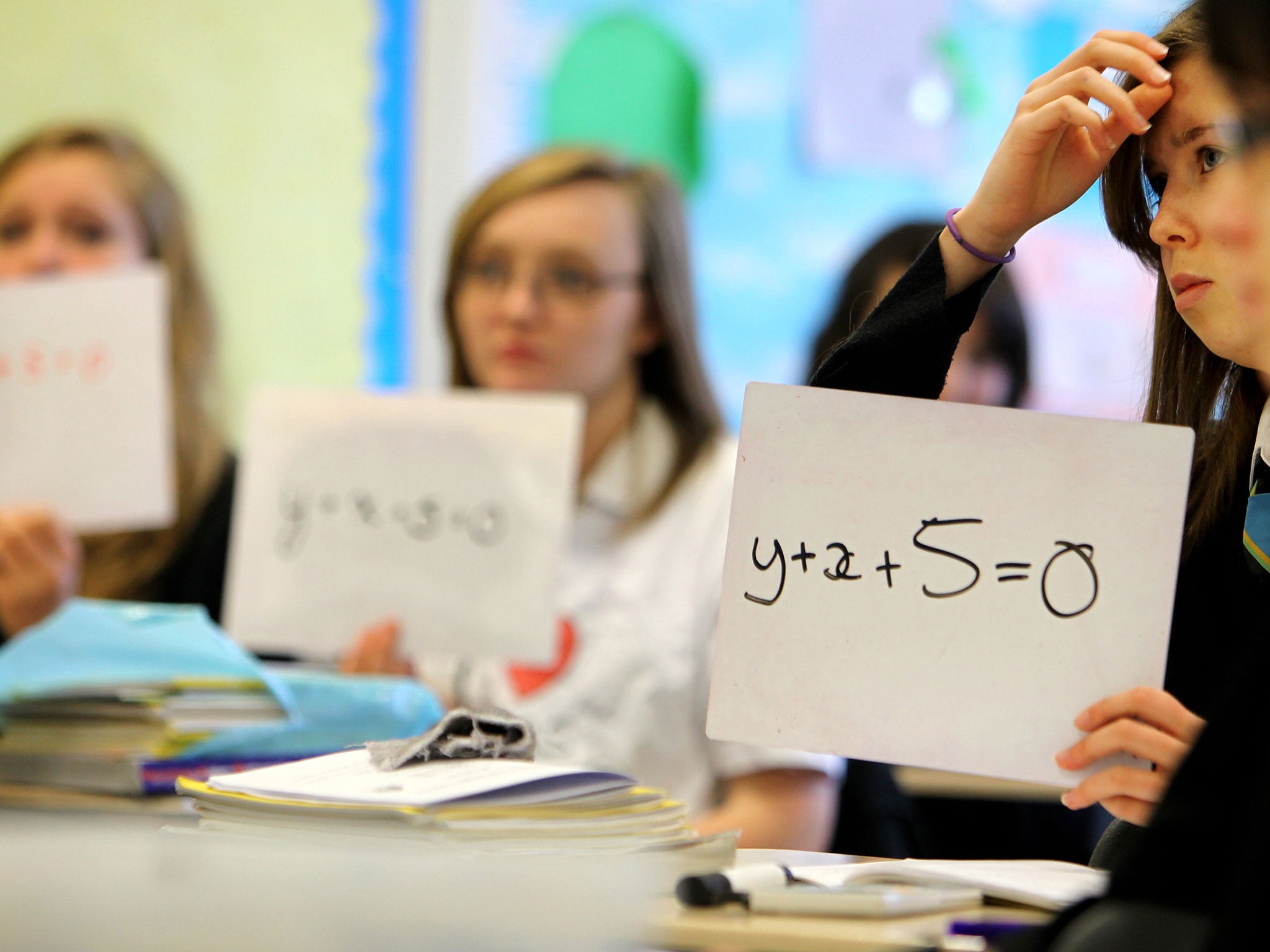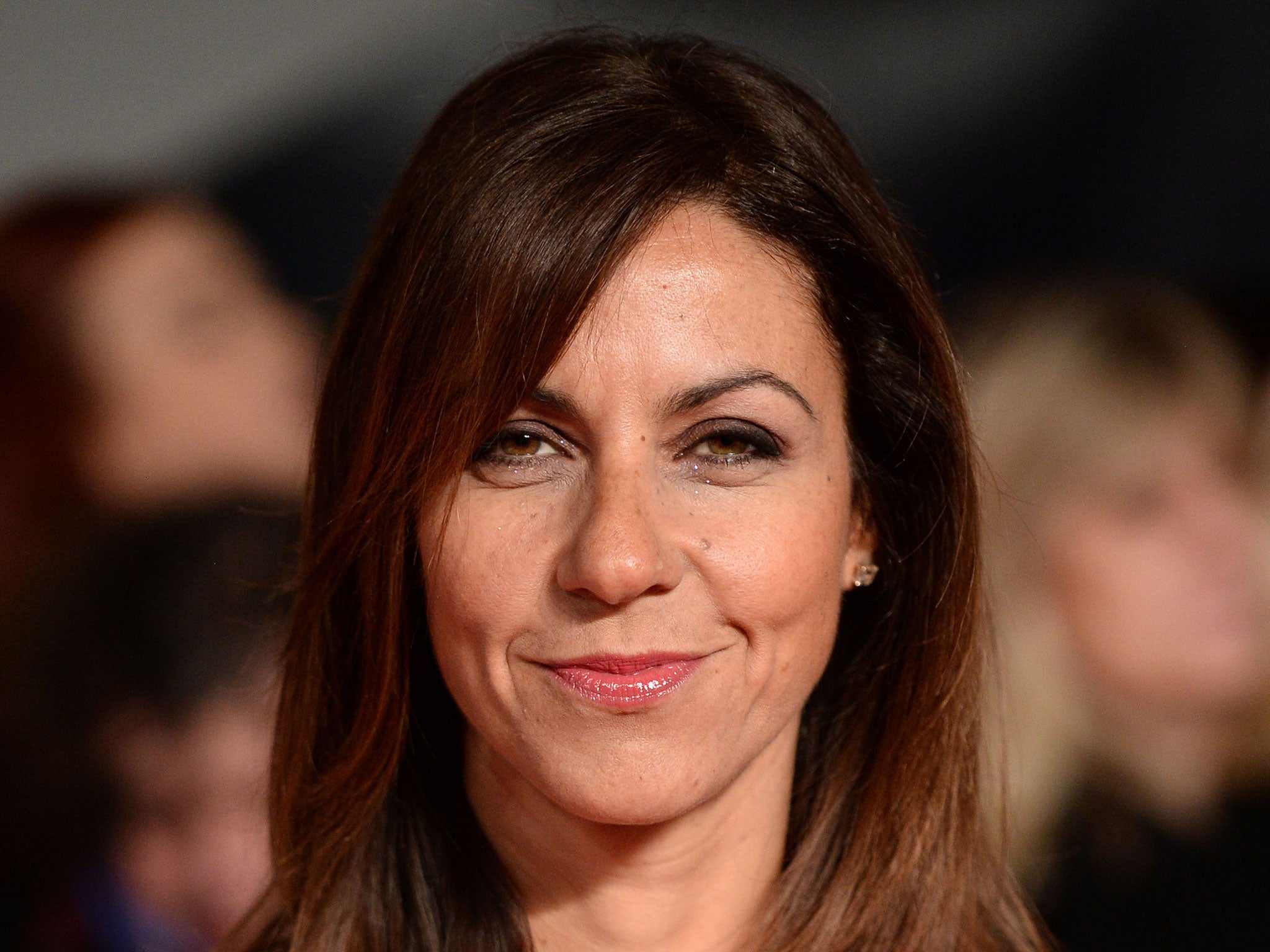Shame celebrities who boast about poor maths, says numeracy charity
Maths skills should be as important as reading, claims National Numeracy

Your support helps us to tell the story
From reproductive rights to climate change to Big Tech, The Independent is on the ground when the story is developing. Whether it's investigating the financials of Elon Musk's pro-Trump PAC or producing our latest documentary, 'The A Word', which shines a light on the American women fighting for reproductive rights, we know how important it is to parse out the facts from the messaging.
At such a critical moment in US history, we need reporters on the ground. Your donation allows us to keep sending journalists to speak to both sides of the story.
The Independent is trusted by Americans across the entire political spectrum. And unlike many other quality news outlets, we choose not to lock Americans out of our reporting and analysis with paywalls. We believe quality journalism should be available to everyone, paid for by those who can afford it.
Your support makes all the difference.Celebrities who boast of being no good at maths should be “named and shamed” for contributing to the national “scourge” of poor numeracy, says a group campaigning to improve standards in the subject.
The National Numeracy charity wants maths to be seen as a vital life skill, and says that people should be as reluctant to reveal they struggle with the subject as they are to admit they cannot read.
In a report published today, it asks people in positions of influence, "whether parents or broadcasters", to "think twice before making disparaging remarks about maths ability”, and says that “prominent offenders” should be named and shamed.
In the past, rock star Alice Cooper and TV presenter Julia Bradbury have been amongst prominent people in public life who have openly stated that they are bad at maths.
The report also calls for a new numeracy GCSE to run alongside traditional maths so that the importance of obtaining core maths skills can be recognised, and for a national numeracy test for all 14-year-olds which would act as a national benchmark for the level of numeracy needed to go on to further study,
Figures show that, while the percentage of the English population with literacy skills equivalent to GCSE A* to C grade has risen from 44 per cent to 57 per cent between 2003 and 2011, equivalent numeracy skills have declined from 26 per cent to 22 per cent in the same period.

“Believing that numeracy doesn’t matter or writing yourself or others off as ‘no good at maths’ is harmful to individuals and to the economy,” says the report.
“We know that virtually everyone can become numerate,” said Mike Ellicock, chief executive of National Numeracy. “But there are massive psychological and structural barriers in the way.”
Russell Hobby, general secretary of the National Association of Head Teachers, added: “Struggling with maths is somehow acceptable in a way that problems with reading are not.
“National Numeracy’s campaign can crystallise this debate and challenge these stereotypes to help every pupil understand and thrive in what is, at its foundations, a mathematical world.”
Join our commenting forum
Join thought-provoking conversations, follow other Independent readers and see their replies
Comments